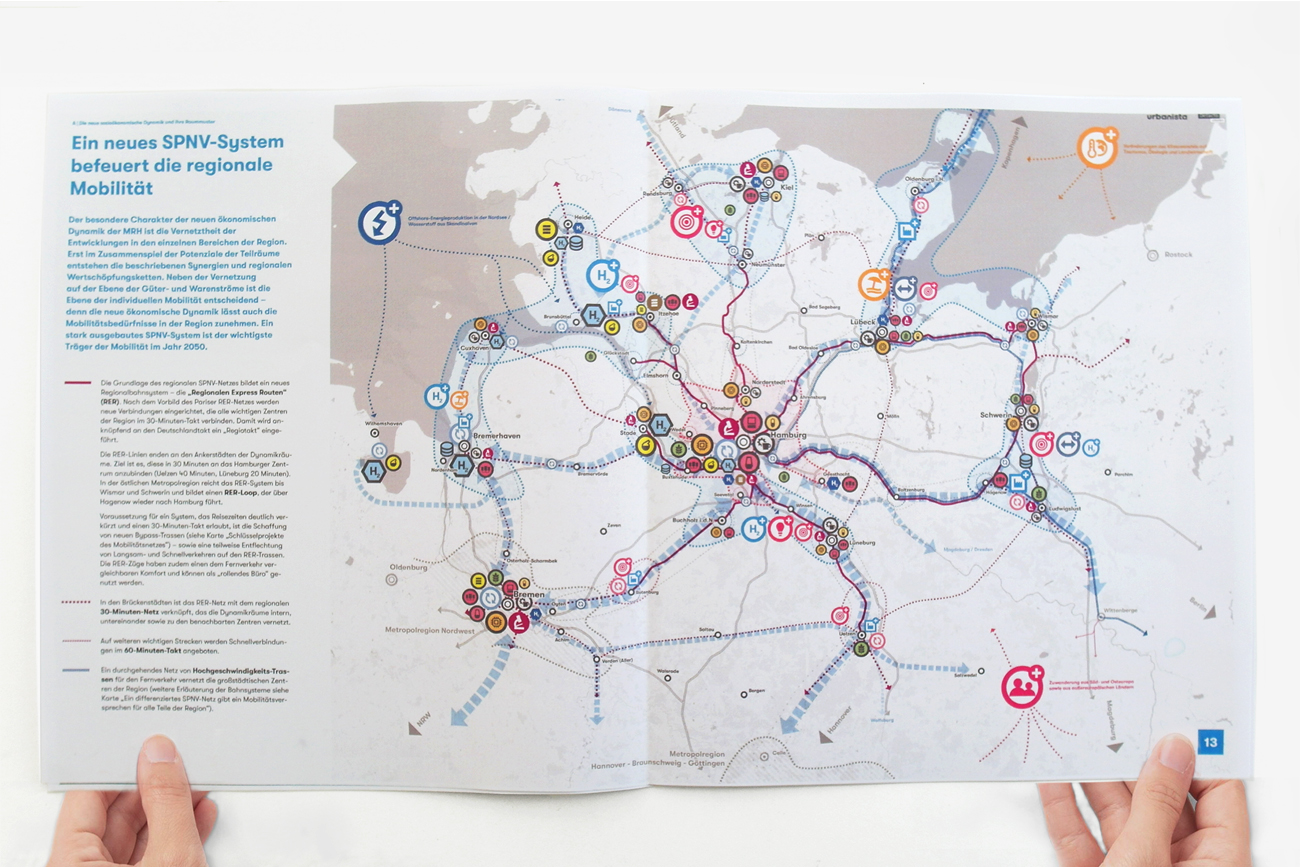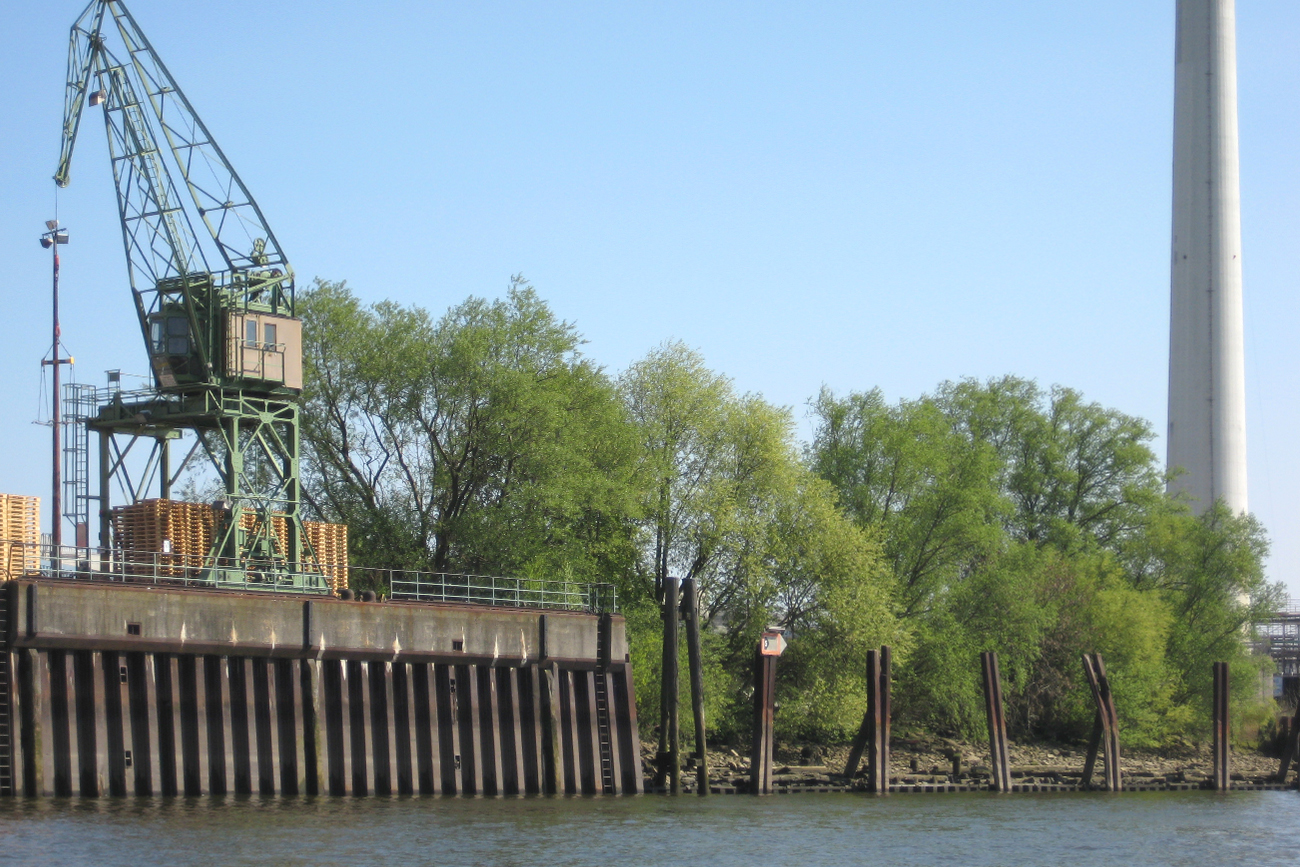Hamburg Metropolitan Region (MRH), Germany
Hamburg Vision 2050
Systematic analysis and spatial principles for regional future development
The Metropolitan Region Hamburg has a lot of qualities and potential but is lacking cooperation across municipal, state and national borders to strategically position itself as a region. Additionally, socio-economic dynamics are changing with the region due to the energy transition and a surplus from offshore energy production, climate effects and migration. To address these challenges and make use of existing and future potential, the MRH Regional Council decided to look for new ideas for the large-scale development of the metropolitan region in a competition process.
Together with Urbanista, we developed a spatial vision for sustainable and integrated development in the MRH in 2050. The vision is built around the potential of the regional open space network and landscapes as our design framework. A regional “green network” links the large-scale landscape ribbons of the region with each other and emphasizes multi-purpose landscapes that contribute to different dynamics and demands in the region:
Re-creative landscapes: These spaces have a high value for local recreation and tourism, which is why other landscape functions designed in such a way that the “recreational value” of the areas is not impaired.
Ecological landscapes: In these areas, settlement development is restricted to the centers, whereby the economic and social interplay between centers and the landscape plays an important role and serves as biodiversity corridors between the biotopes in the landscape strips.
Supply Landscapes: The regional landscapes fulfill another important function as areas of regional self-sufficiency and value creation. Whether for agriculture renewable resources or energy production, combination of site-appropriate and new cultivation methods with other types of use and integration of energy production becomes important.
Different types of settlements that correspond with migration dynamics and potential of innovation linked to the energy transition correspond to the landscape framework to create clusters of different qualities and characteristics across the region. Urban and rural areas are connected through strong multi-modal corridors.
Client: Metropolregion Hamburg
In cooperation with: Urbanista

















